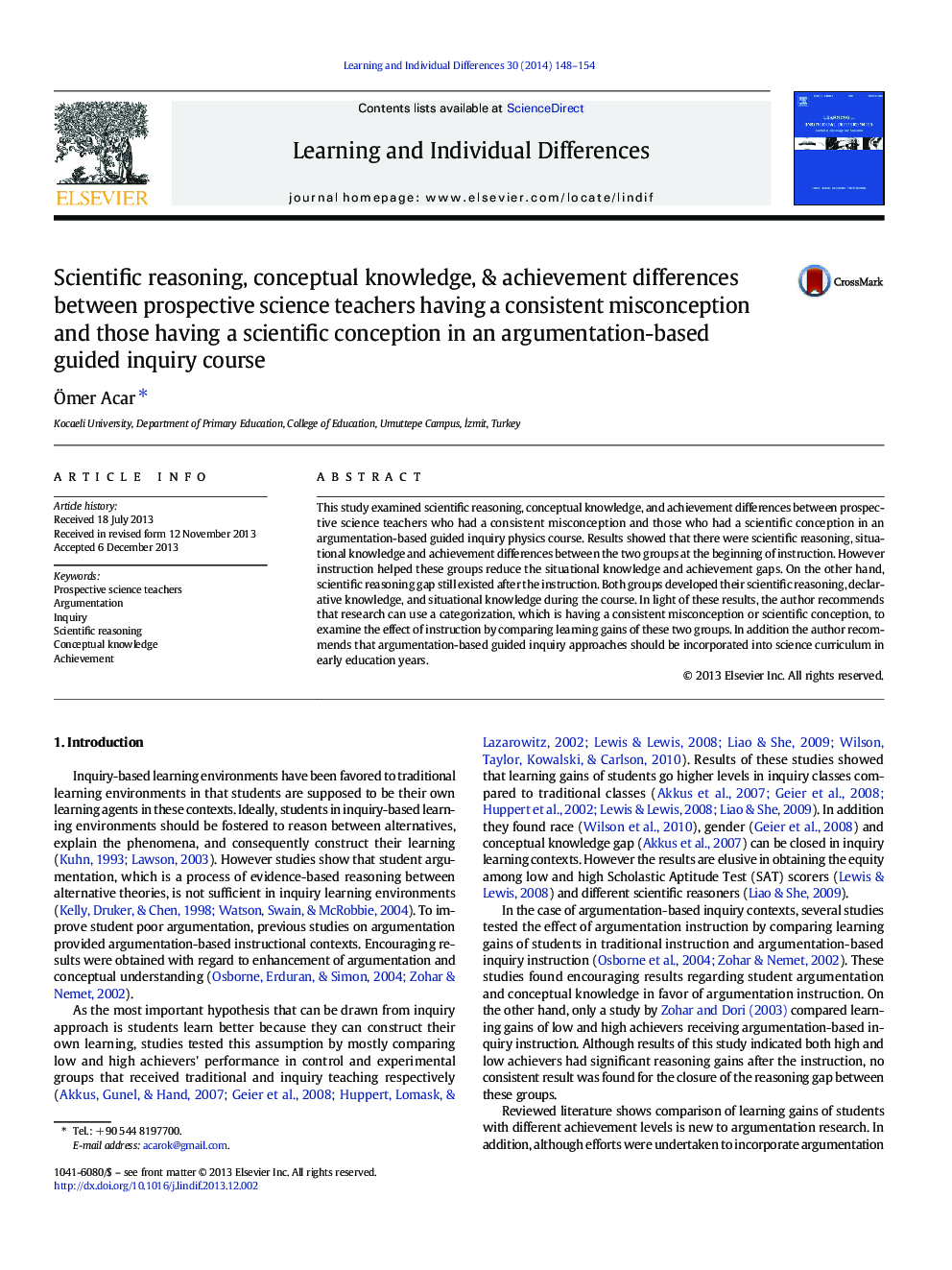| کد مقاله | کد نشریه | سال انتشار | مقاله انگلیسی | نسخه تمام متن |
|---|---|---|---|---|
| 364898 | 621096 | 2014 | 7 صفحه PDF | دانلود رایگان |
• Holding a consistent misconception makes a difference in scientific reasoning (SR).
• Holding a consistent misconception makes difference in conceptual knowledge (CK).
• Argumentation instruction helps future teachers reduce CK and achievement gaps.
• Prospective science teachers developed their SR and CK during the course.
This study examined scientific reasoning, conceptual knowledge, and achievement differences between prospective science teachers who had a consistent misconception and those who had a scientific conception in an argumentation-based guided inquiry physics course. Results showed that there were scientific reasoning, situational knowledge and achievement differences between the two groups at the beginning of instruction. However instruction helped these groups reduce the situational knowledge and achievement gaps. On the other hand, scientific reasoning gap still existed after the instruction. Both groups developed their scientific reasoning, declarative knowledge, and situational knowledge during the course. In light of these results, the author recommends that research can use a categorization, which is having a consistent misconception or scientific conception, to examine the effect of instruction by comparing learning gains of these two groups. In addition the author recommends that argumentation-based guided inquiry approaches should be incorporated into science curriculum in early education years.
Journal: Learning and Individual Differences - Volume 30, February 2014, Pages 148–154
